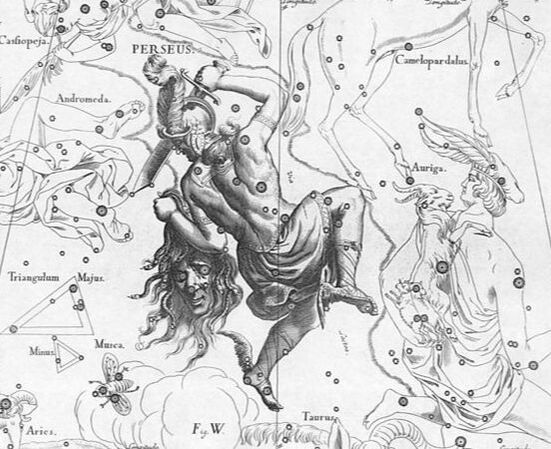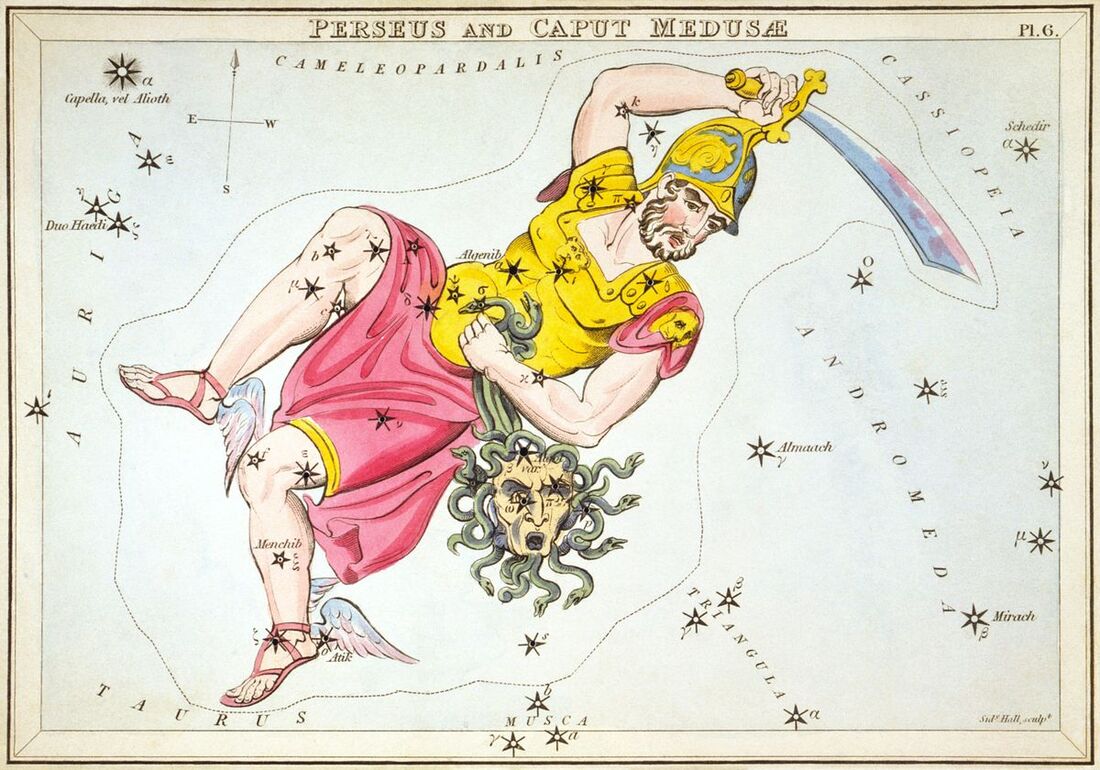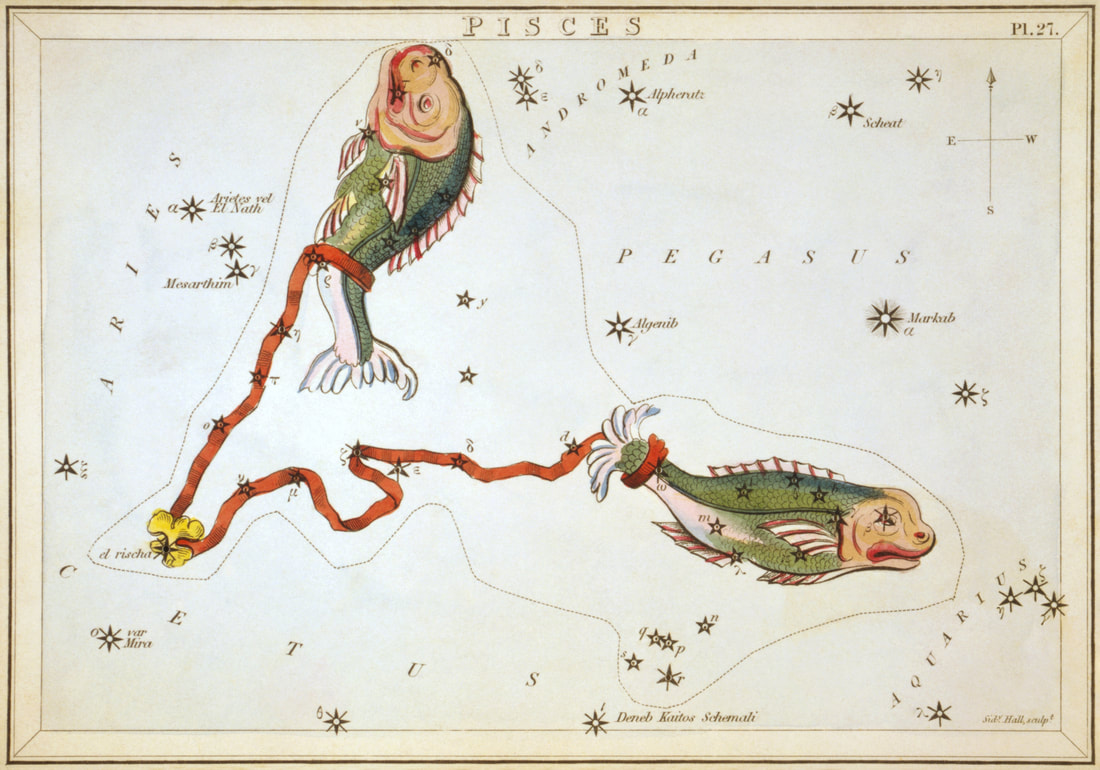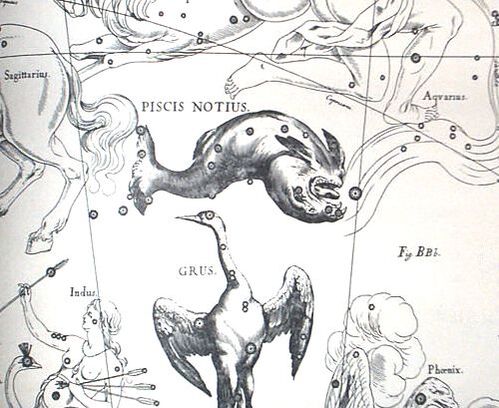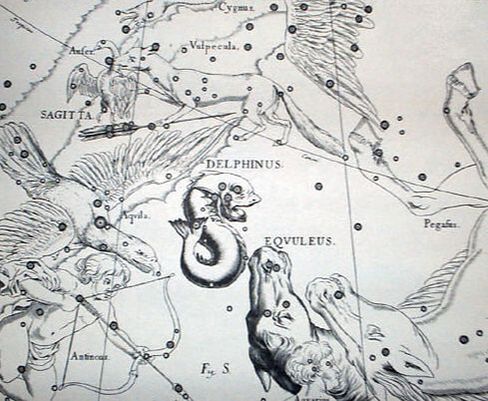THE CONSTELLATIONS AND GREEK MYTHOLOGY
|
Greek mythology and the Constellation Perseus
The constellation Perseus of course relates to the Greek hero of the same name. Perseus was the son of Danae and Zeus, even though Danae had been locked away in a tower to prevent her getting pregnant.
When Perseus arrived in adulthood he was sent off on a seemingly impossible quest to retrieve the head of the Gorgon Medusa by King Polydectes. With the help of the gods Perseus was of course successful, and on the return journey he even managed to find a wife. Andromeda was being sacrificed to the Aethiopian Cetus when Perseus arrived in Aethiopia, but Perseus quickly slew the sea-monster, rescuing the daughter of Cepheus in the process. Perseus, with Andromeda, would return to Greece, rescue his mother from Polydectes, and then eventually, Perseus would become king of Tiryns and Mycenae. The constellation Perseus, in the night sky, is amongst a number of other constellations associated with the Perseus myth, including, Andromeda, Cassiopeia, Cepheus, Cetus and Pegasus. |
|
Greek mythology and the Constellation Pisces
|
Pisces is the constellation that is also known as “the fishes” and is normally said to depict the transformed Aphrodite and Eros.
Aphrodite and Eros were in Syria when the monstrous Typhon revolted against the gods of Mount Olympus. All the gods fled before Typhon, and to escape the monster, Aphrodite and Eros were said to have transformed themselves into two fish as they jumped into the Euphrates. In such form, the pair were able to escape unharmed, and eventually joined many of the other gods in Egypt. Alternatively, rather than transforming themselves into fishes, Aphrodite and Eros swam to safety on the back of two fish. |
|
|
Greek mythology and the Constellation Piscis Austrinus
Piscis Austrinus is the Southern, or Great Fish, and is one of the least defined of the constellations in Greek mythology.
Normally depicted as swallowing the water being poured by Aquarius, the Great Fish, is possibly just the parent of the two fish who rescued Aphrodite and Eros, in the face of Typhon. This though, would mean that Aphrodite and Eros had not transformed themselves, which is the more common version of the myth. There is a Greek version of a myth from Syria which tells of the Great Fish being the fish who saved Derceto, the Syrian goddess Atargatis, from drowning in a lake after she had fallen in. Derceto having found herself in the lake either by accident or as a deliberate attempt to kill herself. Thereafter, local Syrians would refrain from eating fish in thanks for the Great Fish. |
|
|
Greek mythology and the Constellation Sagitta
Sagitta, the Arrow, is another of Ptolemy’s constellations associated with a tale from Greek mythology. Most commonly Sagitta is believed to be the Arrow of Heracles. Heracles was famous for using his arrows which had been dipped in the blood of the Lernaean Hydra, but Sagitta is specifically the arrow used to shoot down the Caucasian Eagle. The Caucasian Eagle was a gigantic eagle that would torment the chained-up Prometheus every day, by eating the Titan’s liver which would regenerate each night. Heracles killed the eagle and released Prometheus. Some tell of Sagitta actually being an Arrow of Apollo, and specifically the one used to kill the Cyclopes, after Zeus had struck down Apollo’s son, Asclepius. |
|
